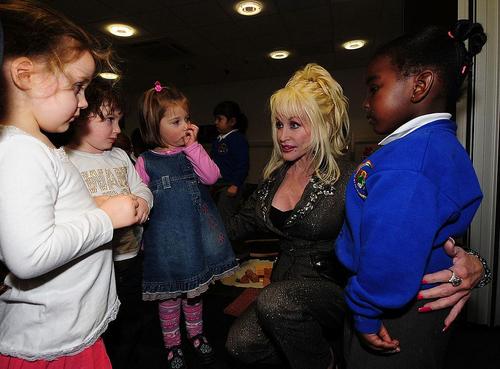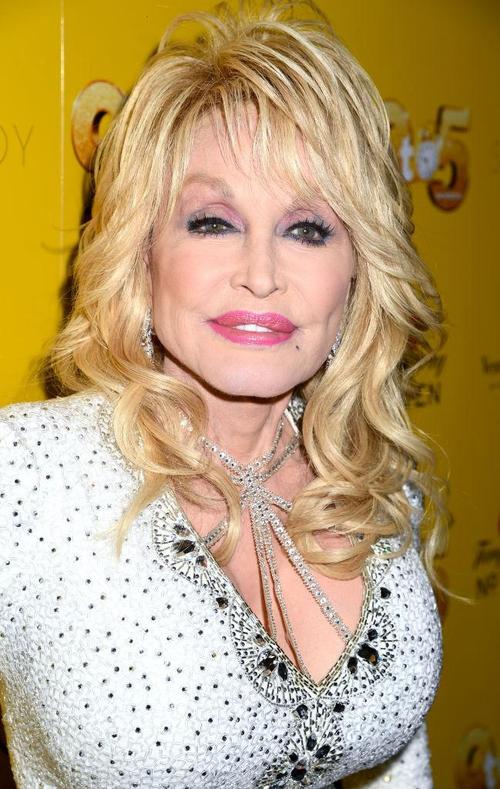Regarding country music royalty, Dolly Parton is undoubtedly one of the most recognizable names. Parton has been a huge influence on the music industry for decades with hits such as “Jolene,” “9 to 5”, and “Coat of Many Colors.” She is known for her impeccable songwriting skills and unique singing voice. She also wrote and first recorded “I Will Always Love You” in 1973, before it was made famous by Whitney Houston in 1992.
Parton is best known as an actress, author, businesswoman, and humanitarian, as well as a singer and songwriter. Her debut album, “Hello, I’m Dolly,” was released in 1967, and she has been a pivotal figure in the industry for over five decades. With so much time in the spotlight, Parton has had plenty of opportunities to become a role model for many, as she has always strived to make a positive impact on the world through her music and actions.
Parton was born on January 19, 1946, in Tennessee, the fourth of 12 children, and grew up poor. She had a genuine love of music, however, and moved to Nashville the day after graduating from high school, embarking on what would become a lifelong career. Parton, now 77 years old, was named People’s Person of the Year in 2021 for her philanthropic contributions and overall status as a true icon. Continue reading to learn more about Parton’s impoverished childhood and how it influenced her charitable efforts.

Parton grew up in Pitman Center, Tennessee, in a one-room cabin on the banks of the Little Pigeon River. Her father was an illiterate sharecropper, and her mother, of Welsh ancestry, regaled her children with stories and ballads. She once described her family as “dirt poor” but later stated:
“We were poor, but I was never poor. We were always fed, had a roof over our heads, and had clothes on our backs. It wasn’t ideal, but Mama and Daddy were always quick to point out the families who suffered far more than we did. Everything seemed completely natural to me. It’s only when you look back on beans and cornbread, sleeping several to a bed, using newspaper for insulation, and dealing with an outhouse that you realize, yes, we were poor.”
One of the difficulties was that the family barely fit in the cabin, forcing them to spend most of their time outside. She also revealed in 1978 that she first saw a toilet when she was 8 years old at her aunt’s house.
“I was hesitant to use it. “I just thought it was going to suck us right down,” she said.
Parton stated that the family made their soap and only bathed once a week during the winter. In high school, however, she claimed she had to wash every day because they “all slept together” and the “kids peed on me every night.”

Despite the difficulties of her childhood, Parton cherishes her memories and lessons.
“My family will always be my first and greatest love. It gets lost in the shuffle sometimes, but there is an element of family in everything I do. “My family influences my music,” she says.
Parton is estimated to be worth $375 million, and her incredible wealth is matched by her generous heart. Parton has given back enormously, most notably through her Dollywood Foundation, which she established in 1988. Initially established to provide scholarships to students at Parton’s former high school, it has expanded to include students from other schools and deserving teachers.
The Imagination Library is one of the foundation’s most unique programs, established in 1995 as a tribute to Parton’s father. It began in Tennessee and has since expanded to all 50 states, distributing approximately 1.3 million books to nearly two million children in the United States each month. When the initiative delivered its 100 millionth book in 2018, Parton told NPR that she never imagined it would “get this big.”
“I just wanted to do something special for my father, my home county, and maybe a couple of counties over. But then it took off on its own, and I suppose it was fate “She stated.
During difficult times, Parton also donates and raises funds. Her My People Fund, which she established in the aftermath of the devastating Great Smoky Mountains wildfires in 2016, raised over $9 million to assist 900 families. Parton also gave to Vanderbilt University Medical Center after her niece received successful leukemia treatment.

Among the other charitable organizations she has supported the American Red Cross, HIV/AIDS charities, and animal rights organizations. In 2020, she also became a vocal advocate for Covid vaccines, and her $1 million contribution was instrumental in developing the Moderna vaccine.
Parton stated that charitable acts come naturally to her. People quoted her as saying:
“I’m addicted to the sensation of giving. Knowing that I’m making a difference in the lives of others.”
What do you think of Dolly Parton’s generosity? Do you believe her background influences how much she gives back to the community? Please notify us, and please share this with your friends and family.




